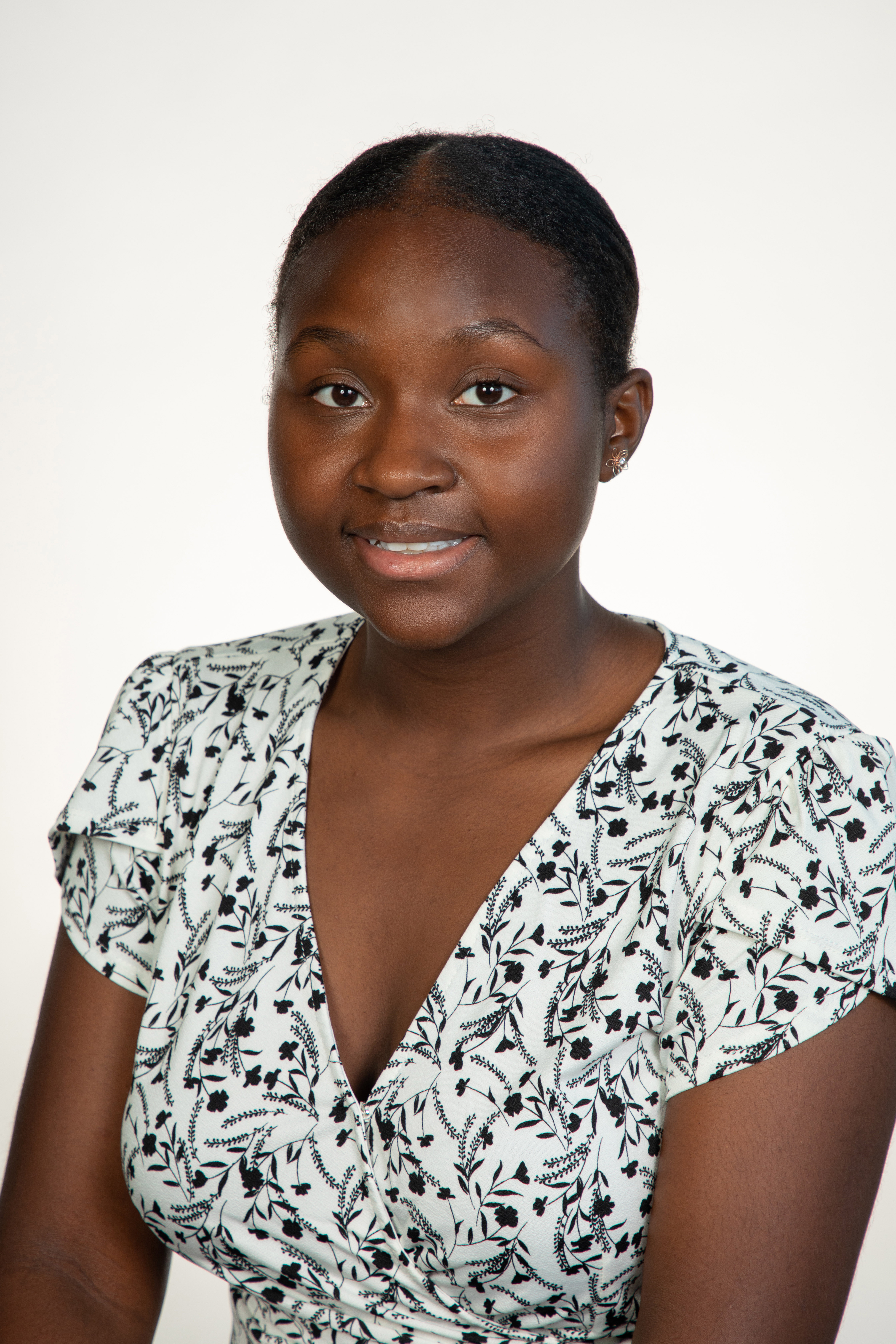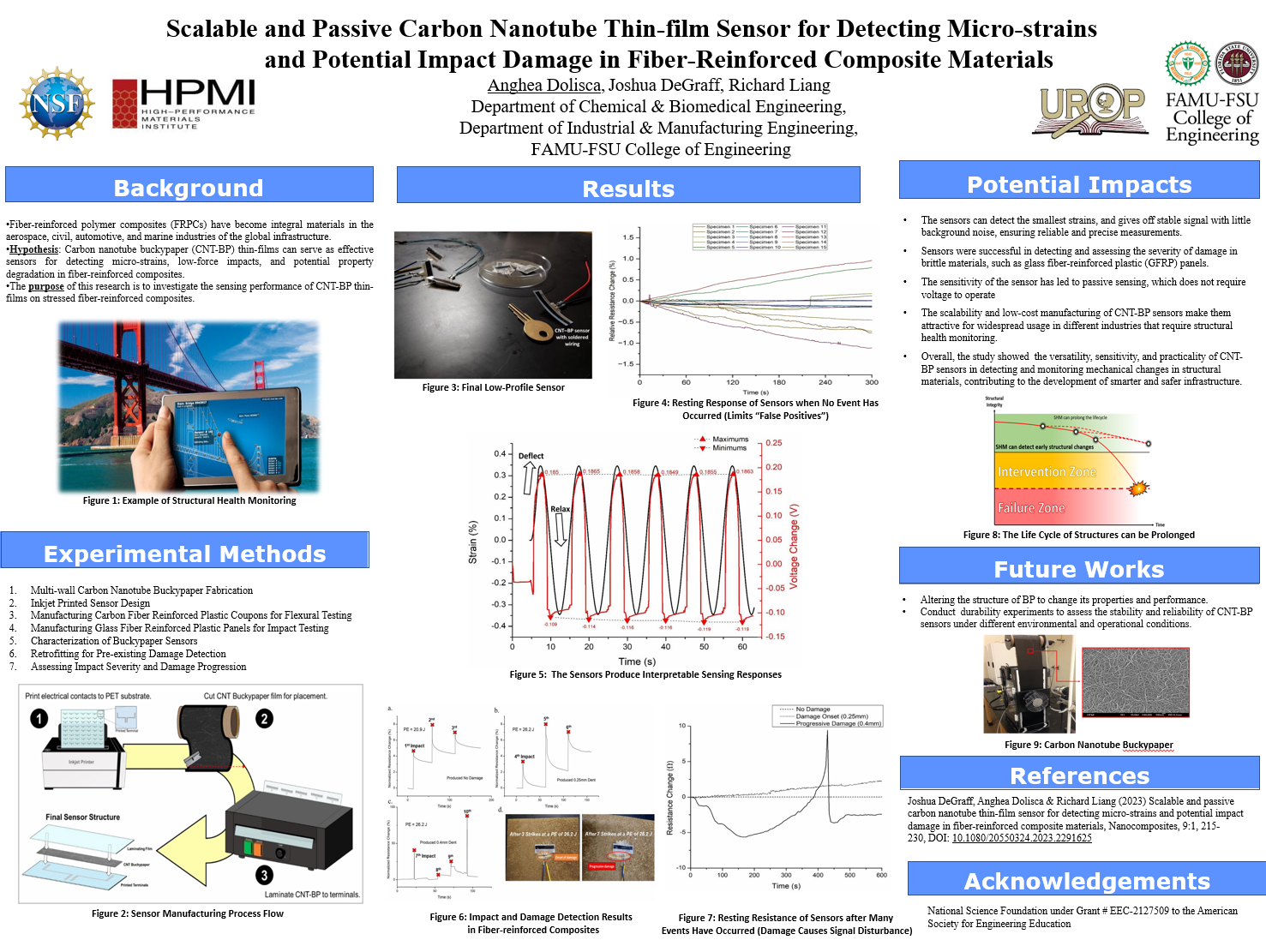Research Symposium
24th annual Undergraduate Research Symposium, April 3, 2024
Anghea Dolisca Poster Session 3: 1:30 pm - 2:30 pm /237

BIO
My name is Anghea "Angie" Dolisca and I am currently a fourth-year student studying biomedical engineering at Florida State University. I currently am a Research Assistant at the High-Performance Institute Lab and a Teaching Assistant for the Undergraduate Research Opportunity Program here on campus.
Scalable and Passive Carbon Nanotube Thin-film Sensor for Detecting Micro-strains and Potential Impact Damage in Fiber-Reinforced Composite Materials
Authors: Anghea Dolisca, Joshua DeGraffStudent Major: BIomedical Engineering
Mentor: Joshua DeGraff
Mentor's Department: Department of Industrial & Manufacturing Engineering Mentor's College: FAMU-FSU College of Engineering Co-Presenters:
Abstract
Structural health monitoring (SHM) of brittle structures will require versatile sensing instrumentation that can transmitting transient loadings into rapid electrical responses. This research investigated the sensing performance of CNT Buckypaper (CNT-BP) thin-films on stressed fiber-reinforced composites, which are integral materials to various industries of the infrastructure. Three-point bending experiments revealed an extraordinary gauge factor (∼40) and impressive response linearity. Electrical responses were instantaneous; moreover, low force impacts were detectable, the sensors provided clear indications of spatial recognition. Most importantly, the manufacturing methods are scalable and cost effective compared to commercialized strain gauges. This study examined micro-strain measurements (<1%) of carbon fiber composites, in which bending strain of 0.002% could be detected. In addition, damage progressions of glass fiber composites were recorded in response to low-impact energies. Less than 20 J of impact energy was detectable by the sensor, and the severity could be assessed from drastic changes in the sensing behavior.
Keywords: Carbon Nanotube, Detecting Micro-strains, and Potential Impact Damage


